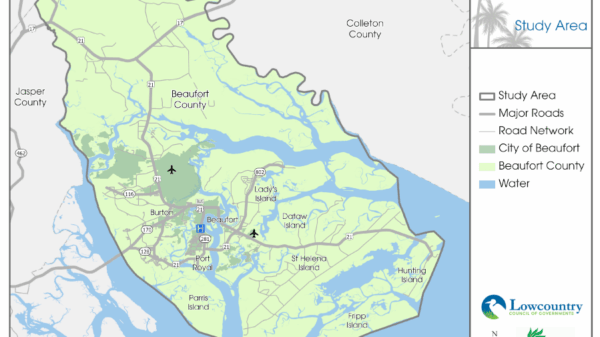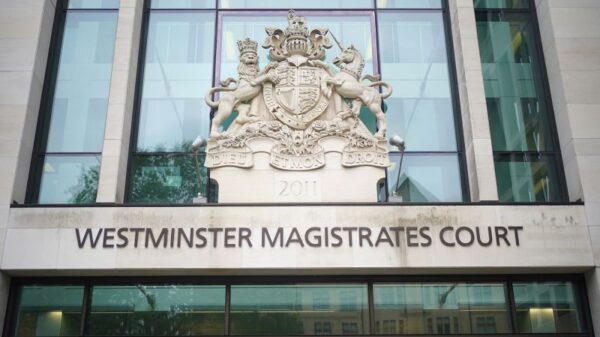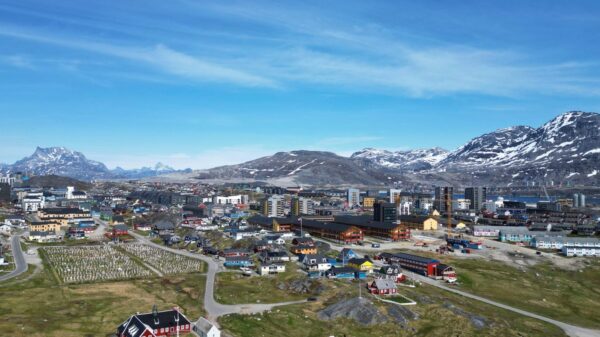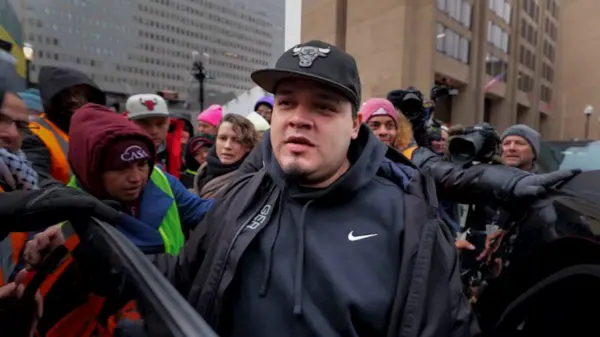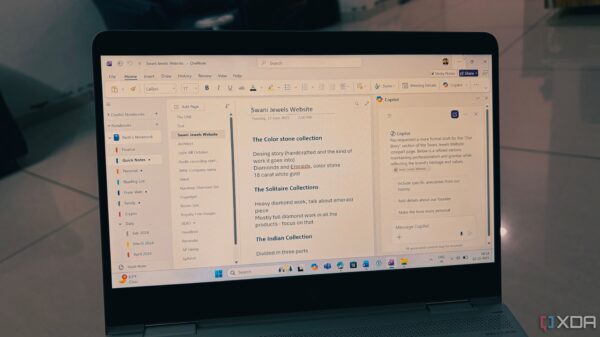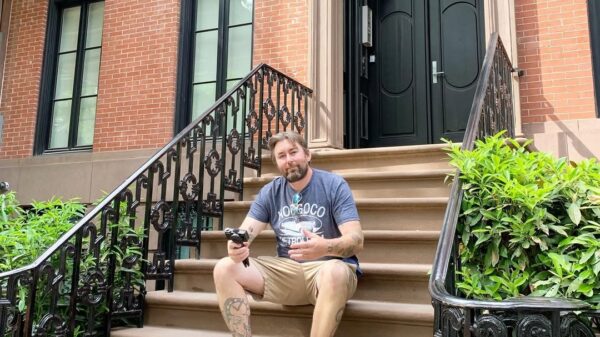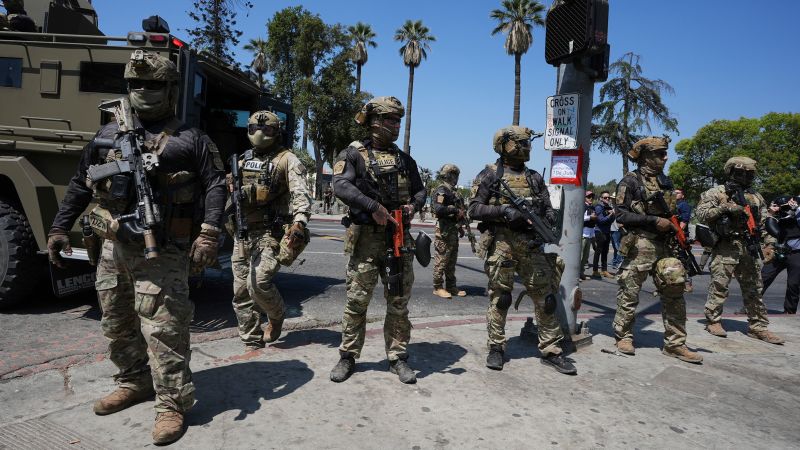Los Angeles is taking a significant step in response to recent immigration raids by the Trump administration. The city, along with Los Angeles County and several municipalities in Southern California, is seeking to join a lawsuit aimed at challenging these federal actions. This legal initiative comes on the heels of protests that erupted across the region, prompting the deployment of National Guard troops.
The lawsuit, filed last week by the ACLU of Southern California, alleges that the Department of Homeland Security (DHS), which oversees Immigration and Customs Enforcement (ICE), has unlawfully arrested and detained individuals to meet arbitrary quotas set by the Trump administration. According to the ACLU, these actions violate constitutional rights, which protect all individuals from illegal stops, regardless of their immigration status or race. “We will hold DHS accountable,” stated Mohammad Tajsar, a senior staff attorney with the ACLU.
Officials from Los Angeles and surrounding cities expressed their intent to join the lawsuit during a news conference. Hydee Feldstein Soto, the City Attorney, emphasized the need to challenge what they describe as unlawful immigration enforcement practices. “We support our residents in stopping these unconstitutional practices,” she asserted. “These unconstitutional roundups and raids cannot be allowed to continue.”
The lawsuit emerges after President Donald Trump ordered the deployment of thousands of National Guard troops to Los Angeles in response to protests against his administration’s immigration policies. Trump claimed that local leaders had lost control, an assertion strongly denied by both Los Angeles Mayor Karen Bass and California Governor Gavin Newsom. The protests in Los Angeles sparked similar demonstrations nationwide, as many took to the streets in an effort to voice their opposition to the administration’s actions.
Mayor Bass described the situation created by the immigration raids as a public safety concern. “You have a situation now where people are walking down the street, a car will pull up, no license plate, men will jump out completely masked, pull guns on whoever it is and take them away,” she explained. “Aside from the fact that this is unconstitutional, how do we know the difference between this and a kidnapping?”
In addition to the City of Los Angeles, several other cities, including Pasadena, Santa Monica, Culver City, and West Hollywood, are also seeking to join the legal action. This announcement was made shortly after Bass confronted heavily armed federal agents and National Guard personnel in MacArthur Park. “We are a city of immigrants, and we will stand united with Angelenos regardless of what country they came from,” Bass stated.
The Trump administration’s recent directives have expanded ICE’s deportation efforts, particularly in Democratic-led cities, with a goal of achieving mass deportations. Earlier this year, the administration also filed a lawsuit against the City of Los Angeles over its “sanctuary city” policies, claiming that local laws interfere with federal immigration enforcement.
Economic impacts from the immigration raids are becoming evident. Local business leaders have reported disruptions in key industries and a decline in consumer sentiment. Anthony Rodriguez, president and CEO of the LA Fashion District Business Improvement District, highlighted the economic toll, noting that visitor numbers have dropped by 45%, leading to significant revenue losses.
As the lawsuit progresses, Los Angeles officials are committed to asserting their rights under the 10th Amendment and maintaining local control over police powers. The outcome of this legal battle may set a critical precedent in the ongoing debate over immigration enforcement and local governance.



